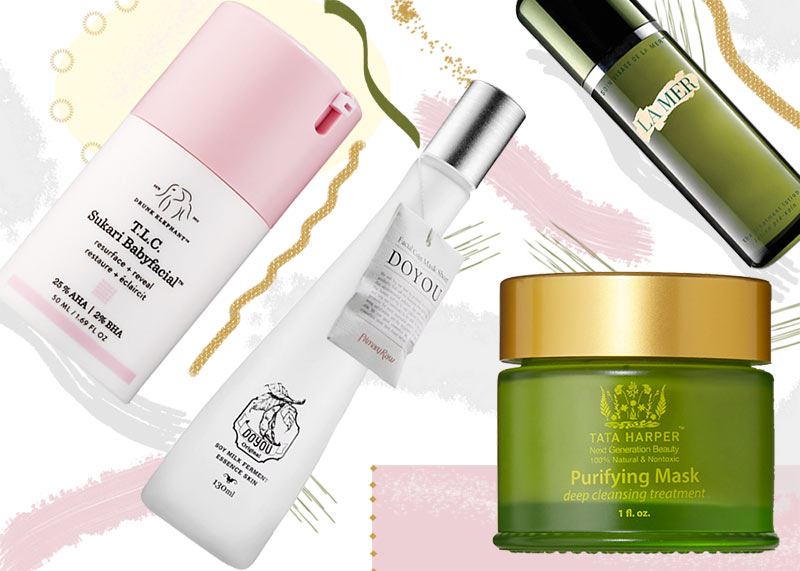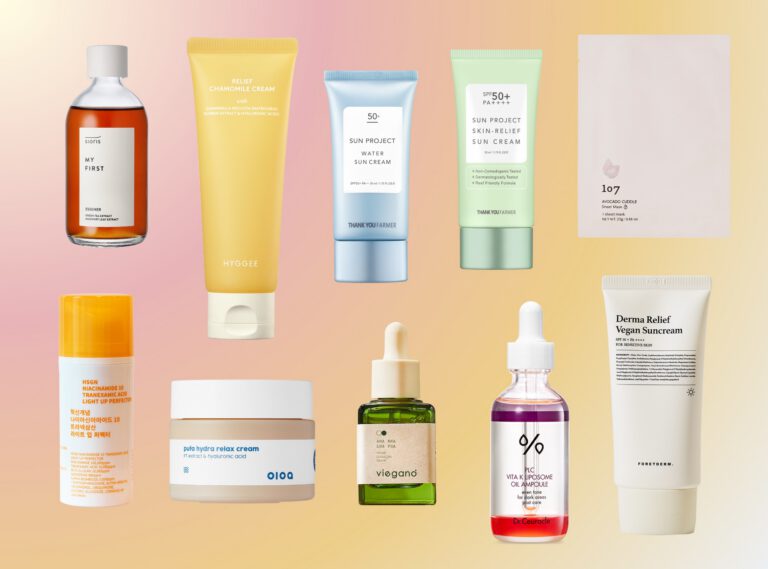Introduction to probiotic skincare
Imagine a world where your skin thrives not just from the products you slather on, but also from living cultures and beneficial bacteria. Welcome to the fascinating realm of probiotic skincare! This innovative approach goes beyond traditional creams and serums, offering a holistic way to nourish your skin from the outside in. As we dive deeper into this trend, you’ll discover how probiotics can transform your complexion while promoting overall skin health. Ready to unlock radiant, microbiome-friendly skincare? Let’s explore the transformative benefits waiting for you!
Understanding the role of probiotics in maintaining skin health
Probiotics play a crucial role in skin health, much like they do for gut health. These beneficial bacteria help maintain the balance of the skin’s microbiome. A healthy microbiome acts as a protective barrier against harmful pathogens and environmental stressors.
When our skin is exposed to various factors—like pollution or harsh weather—it can experience imbalances. This may lead to conditions such as acne, eczema, or rosacea. Probiotics work by promoting good bacteria that combat these issues and reduce inflammation.
Incorporating probiotic skincare products into your routine can enhance hydration and improve overall texture. They support cellular turnover and repair damaged skin while boosting its natural defenses.
Using probiotics externally nourishes this unique ecosystem, helping it thrive. The synergy between your skin and these live microorganisms fosters a radiant complexion that feels revitalized from within.
Benefits of using probiotic skincare products
Probiotic skincare products offer a host of benefits for your skin. First and foremost, they help balance the skin’s microbiome. By introducing good bacteria, these products can diminish harmful microbes that lead to issues like acne or irritation.
Another notable advantage is their ability to enhance hydration. Probiotics support the skin’s natural barrier function, locking in moisture and leaving your complexion plump and refreshed.
Moreover, probiotic formulations often possess anti-inflammatory properties. This means they can soothe redness and sensitivity while promoting an even tone across your skin.
You’ll also find that many probiotic skincare items encourage cell turnover. This leads to brighter, smoother skin over time as dead cells are shed more efficiently.
Incorporating probiotics into your routine may also help boost collagen production. The result? Firmer, more youthful-looking skin that radiates health naturally.
How to choose the right probiotic skincare products for your skin type
Choosing the right probiotic skincare products starts with understanding your skin type. Oily skin may benefit from lightweight, gel-based formulas that won’t clog pores.
For dry or sensitive skin, look for creams rich in hydrating ingredients alongside probiotics. These can help restore moisture and balance your microbiome without causing irritation.
If you’re dealing with acne or breakouts, opt for probiotics known to fight inflammation and bacteria. Ingredients like Lactobacillus can be particularly helpful.
Don’t overlook the rest of the ingredient list. Choose products free from harsh chemicals and fragrances, which could disrupt your skin’s natural barrier.
Always check for clinical studies backing up claims on effectiveness. A reputable brand should provide transparency about their formulations, including strains of probiotics used.
Patch testing is essential before fully committing to a product; this helps ensure it’s compatible with your unique complexion.
Incorporating probiotic-rich foods into your diet for added skin benefits
Including probiotic-rich foods in your diet can significantly enhance your skin’s health. Foods like yogurt, kefir, sauerkraut, and kimchi are packed with beneficial bacteria that support a balanced gut microbiome.
When the gut is healthy, it reflects on your skin. A well-fed microbiome helps reduce inflammation and can combat acne or eczema flare-ups. Fermented foods also aid digestion, ensuring nutrients reach your skin effectively.
Consider adding a serving of fermented vegetables to your lunch or enjoying a smoothie with unsweetened yogurt for breakfast. These simple swaps make a big difference over time.
Don’t forget about beverages! Kombucha not only hydrates but also introduces probiotics into your system in an enjoyable way. Exploring different flavors keeps things exciting while promoting radiant skin from within.
DIY at-home probiotic skincare recipes
Creating your own probiotic skincare products at home can be both fun and rewarding. It allows you to customize formulations that cater to your skin’s specific needs.
Start with yogurt, a fantastic source of probiotics. Mix it with honey for hydration and soothing properties. This simple mask not only nourishes but also leaves your skin feeling fresh.
Another option is a kefir toner. Combine equal parts of kefir and rose water in a spray bottle. This microbiome-friendly blend balances pH levels while providing hydration throughout the day.
For an exfoliating scrub, mash ripe avocado with some ground oats and add a splash of lemon juice. The combination feeds your skin beneficial bacteria while gently removing dead skin cells.
These DIY recipes are easy to make, packed with nutrients, and promote healthy skin from the outside in! Enjoy experimenting as you discover what works best for you.
Potential risks and precautions when using probiotic skincare products
While probiotic skincare offers many benefits, it’s essential to approach it with care. Not everyone’s skin responds positively to these products. Some individuals may experience irritation or allergic reactions.
Before trying a new probiotic product, conduct a patch test on a small area of your skin. This step can help you identify any adverse reactions before applying it more broadly.
It’s also crucial to consider the formulation’s quality. Look for reputable brands that prioritize microbiome-friendly ingredients. Products containing artificial fragrances and harsh chemicals might undermine the positive effects of probiotics.
If you have sensitive or reactive skin, consult with a dermatologist before introducing probiotics into your routine. They can guide you in selecting appropriate options tailored to your specific needs.
Keep an eye on expiration dates. Probiotics are living organisms; expired products may not deliver their intended benefits effectively.
Conclusion: Embracing the power of probiotics for healthy, glowing
Embracing the power of probiotics for healthy, glowing skin can be a game-changer in your skincare routine. By understanding how probiotic skincare benefits your complexion and supports microbiome-friendly practices, you set the stage for vibrant skin.
Incorporating these products into your daily regimen not only nourishes your skin but also enhances its natural barrier against environmental stressors. When you choose the right probiotic formulations tailored to your specific needs, you’re investing in long-term skin health.
Additionally, complementing topical treatments with probiotic-rich foods fosters an internal balance that reflects on your outer appearance. DIY recipes offer a fun and creative way to explore this trend while ensuring you’re using fresh ingredients.
As with any skincare journey, being mindful of potential risks is essential. Always patch-test new products and consult professionals if needed. The combination of awareness and proactive care will empower you to maximize the advantages of probiotics for radiant results.
Unlocking healthier skin through probiotics opens up countless possibilities for beauty routines rooted in science and nature. Embrace this shift towards holistic well-being by prioritizing what truly works for you—your journey toward glowing skin starts today.



















